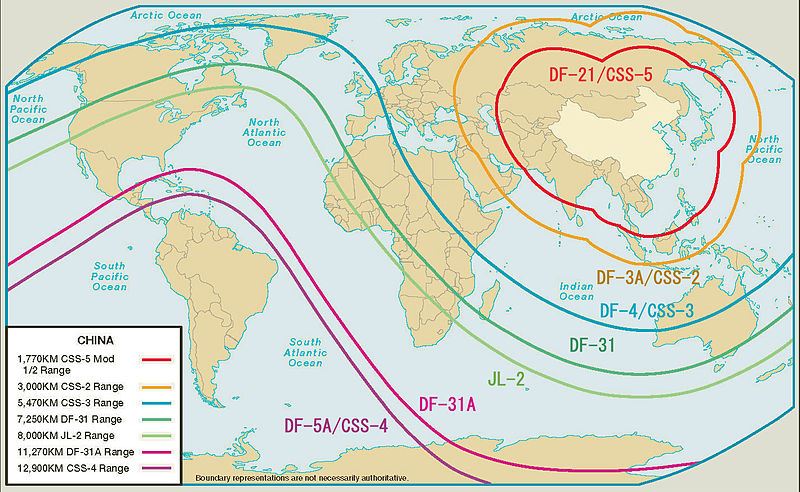Nuclear Weapons 249 - China Opts For Small But Effective Nuclear Arsenal
Russia has about seven thousand nuclear warhead and the U.S. has about six thousand and eight hundred. Both countries have missiles, bombers and submarines to deliver those warheads. Both countries have announced ambitious plans to modernize their nuclear arsenals in the coming years. Each country believes that it needs such huge nuclear arsenal to deter an attack by the other.
China, on the other hand, only has about two hundred and sixty nuclear warheads. China's population is much larger than either the U.S. or Russia and its economy is rapidly becoming one of the biggest in the world. There are tensions between China and the U.S. as well as tensions between China and Russia but apparently China does not believe that it needs to maintain a huge nuclear arsenal to deter nuclear attacks. Unlike Russia and the U.S., China does not have a large portion of its nuclear arsenal primed for immediate launch. China has a policy of support for nuclear disarmament and also says that it will never be the first to use nuclear weapons in a conflict.
China believes that a few hundred nuclear warheads should be sufficient to deter an enemy from attacking them with nuclear weapons. If China's existing nuclear arsenal could destroy one or a few major cities of an enemy, that should be enough deterrence. China does not have to spend hundreds of billions of dollars maintaining and upgrading a huge nuclear arsenal to be safe.
Nuclear weapons are so destructive that they have little attraction for generals fighting wars. If only a hundred nuclear weapons are deployed, there is a good chance that the resulting nuclear winter would end human civilization regardless of who started the fight. Any country staging a major nuclear attack would probably be signing their own death warrant. With the money saved from building a huge nuclear arsenal, China is able to develop more conventional and unconventional weapons that might actually be used in future conflicts.
Missile silos and bomber bases are massive and make easy targets for attack. Nuclear weapons are becoming obsolete in the age of cyberwarfare. Why use nuclear weapons against a nuclear-armed adversary when it might be possible to sabotage missile and bomber command and control systems with a cyberattack at a fraction of the cost of a conventional attack? Other weapons such as biological and chemical weapons are much cheaper to create and deploy. And, they could be much more difficult to backtrack to the attacker than a missile launch that paints a big red target on its launch point or a bomber that must fly over enemy territory.
Although China has decided to maintain a small nuclear arsenal, that does not mean that they are not developing new systems like advanced multiple hypersonic reentry vehicles for nuclear warheads. These new delivery systems are designed to overwhelm any missile defense system. They are also working on anti-ballistic missiles systems to deal with possible missile attacks. China's nuclear weapons and delivery systems may be less extensive and expensive that the nuclear arsenals of the Russia and the U.S. but they appear to be quite adequate to protect China from nuclear attack in the Twenty First Century.
Estimated ranges of Chinese nuclear missiles:
